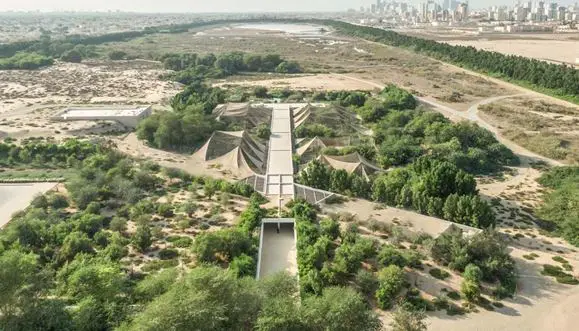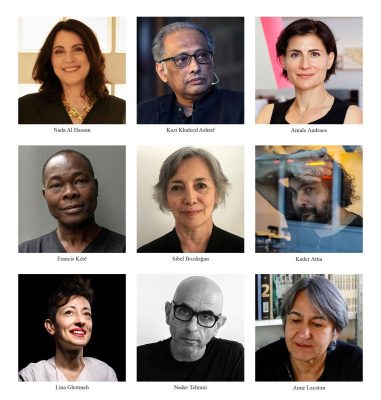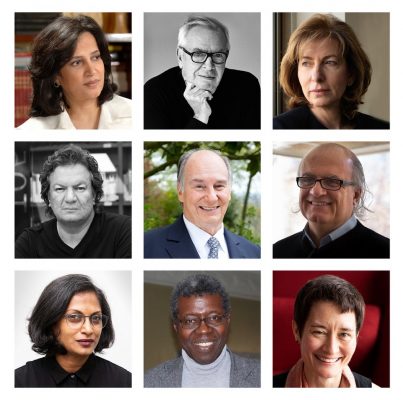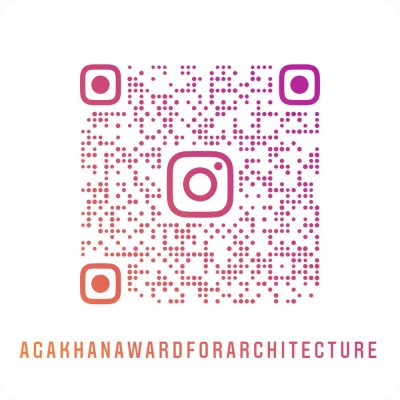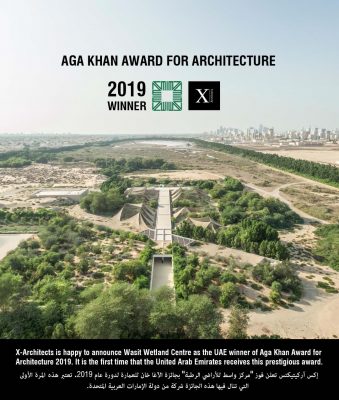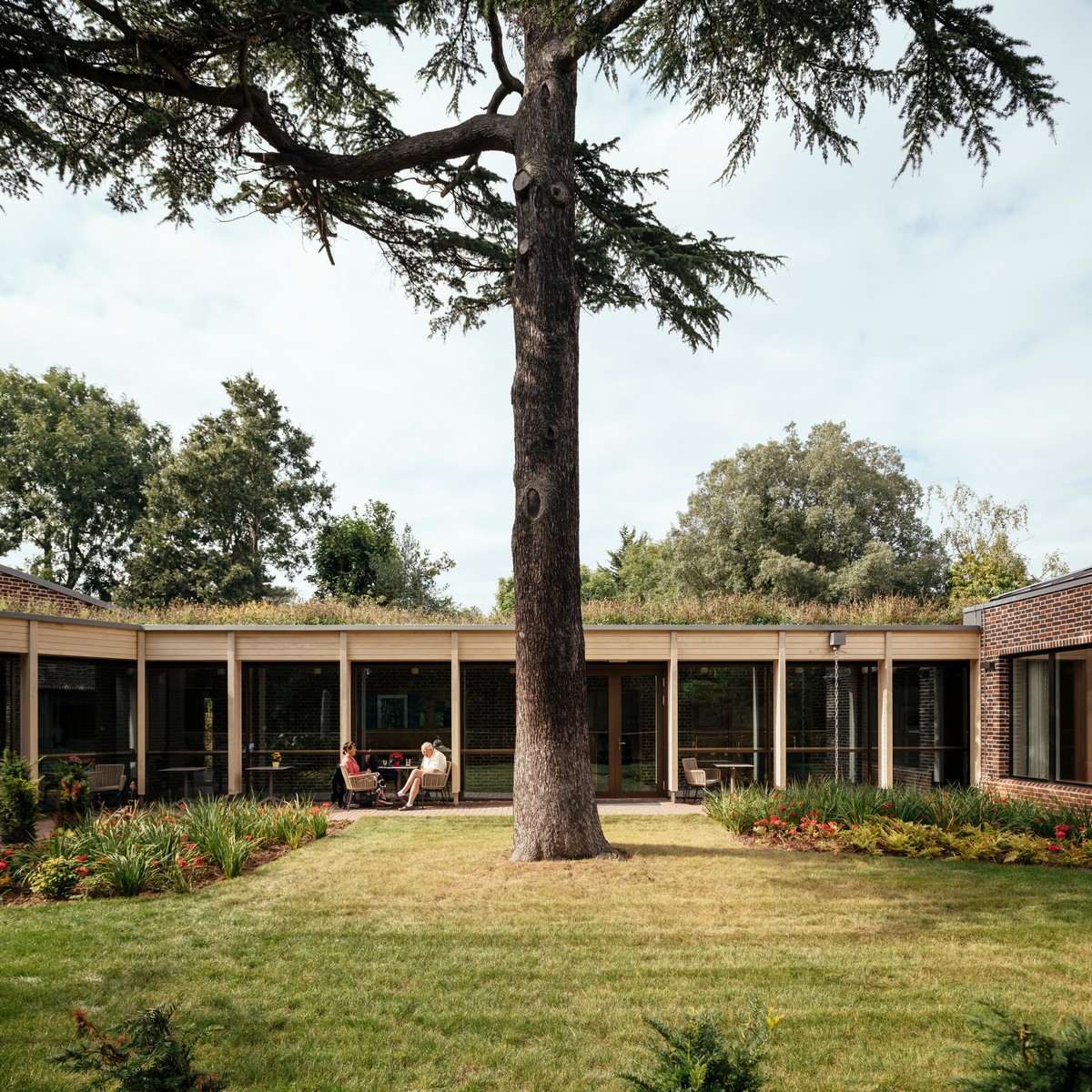Aga Khan Award 2020-2022, Architects, Architecture, Buildings Shortlist News, Design
2020-2022 Aga Khan Award for Architecture News
2 June 2022
2022 Aga Khan Award for Architecture Shortlist
post updated 23 September 2021
2020-2022 Aga Khan Award for Architecture Jury News
Independent Master Jury Will Select Recipients of US$ 1 Million Prize
Geneva, Switzerland, 23 September 2021 – The members of the Master Jury for the 2020-2022 Cycle of the Aga Khan Award for Architecture were announced today. The Jury, which independently selects the recipients of the US$ 1 million Award, will convene in January 2022 to select a shortlist from hundreds of nominated projects.
The nine members of the Master Jury for the fifteenth Award cycle are:
Ms. Nada Al Hassan Conservation Architect, specialised in international cultural and sustainable development policies, Paris
Mr. Kader Attia Artist, Berlin and Paris
Mr. Francis Kéré Professor of Architectural Design and Participation at the Technical University of Munich
Professor Amale Andraos Dean of Columbia GSAPP and Principal of WORKac, New York
Professor Sibel Bozdoğan Visiting Professor of Modern Architecture and Urbanism, Boston University
Ms. Anne Lacaton Founder and Principal of Lacaton & Vassal Architects, Paris-Montreuil
Professor Kazi Khaleed Ashraf Director-General of the Bengal Institute for Architecture, Landscapes and Settlements, Dhaka
Ms. Lina Ghotmeh Founder and Principal of Lina Ghotmeh – Architecture, Paris
Professor Nader Tehrani Dean of The Cooper Union’s Irwin S. Chanin School of Architecture, New York and Founding Principal of NADAAA, Boston and New York
Once the Master Jury selects a shortlist, the shortlisted projects are then subjected to rigorous on-site reviews by independent experts, most of them architects, conservation specialists, planners or structural engineers.
The Jury meets for a second time in summer 2022 to examine the on-site reviews and select the final recipients of the Award.
The selection process emphasises architecture that not only provides for people’s physical, social and economic needs, but that also stimulates and responds to their cultural aspirations. Particular attention is given to building schemes that use local resources and appropriate technology in innovative ways and to projects likely to inspire similar efforts elsewhere.
The Aga Khan Award for Architecture is governed by a Steering Committee chaired by His Highness the Aga Khan. The other members of the Steering Committee are Sheikha Mai Bint Mohammed Al Khalifa, President, Bahrain Authority for Culture and Antiquities, Manama; Emre Arolat, Founder, EAA – Emre Arolat Architecture, Istanbul; Meisa Batayneh, Principal Architect, Founder, maisam architects and engineers, Amman; Sir David Chipperfield, Principal, David Chipperfield Architects, London; Souleymane Bachir Diagne, Director, Institute of African Studies, Columbia University, New York; Nasser Rabbat, Aga Khan Professor, Massachusetts Institute of Technology, Cambridge; Marina Tabassum, Principal, Marina Tabassum Architects, Dhaka; Sarah M. Whiting, Dean, Graduate School of Design, Harvard University, Cambridge. Farrokh Derakhshani is the Director of the Award.
18 Mar 2021
Aga Khan Award for Architecture announces Steering Committee for 2022 Award
Geneva, Switzerland, 18 March 2021 – The Aga Khan Award for Architecture has announced the members of the Steering Committee for the 2020-2022 cycle.
The Steering Committee is chaired by His Highness the Aga Khan. The other members of the Steering Committee are:
• Sheikha Mai Bint Mohammed Al Khalifa, President, Bahrain Authority for Culture and Antiquities, Manama.
• Emre Arolat, Founder, EAA- Emre Arolat Architecture, Istanbul.
• Meisa Batayneh, Principal Architect, Founder, maisam architects and engineers, Amman.
• Sir David Chipperfield, Principal, David Chipperfield Architects, London.
• Souleymane Bachir Diagne, Director, Institute of African Studies, Columbia University, New York.
• Nasser Rabbat, Aga Khan Professor, Massachusetts Institute of Technology, Cambridge.
• Marina Tabassum, Principal, Marina Tabassum Architects, Dhaka.
• Sarah M. Whiting, Dean, Graduate School of Design, Harvard University, Cambridge.
Farrokh Derakhshani is the Director of the Award. For more information about the Steering Committee, including biographies, please see the 2022 Steering Committee page.
The Steering Committee is the governing body of the Award. Perhaps one of its most important tasks is to select an independent Master Jury which, in turn, selects the award recipients from the nominated projects. It is also responsible for establishing the eligibility criteria for project nominations, providing thematic direction to the Award, and developing plans for its cyclical and long-term future.
Established in 1977, the Aga Khan Award for Architecture is given every three years to projects that set new standards of excellence in architecture, planning practices, historic preservation and landscape architecture. The Award seeks projects that represent the broadest possible range of architectural interventions, with attention given to building schemes that use local resources and appropriate technology in innovative ways, and those that are likely to inspire similar efforts elsewhere. Projects can be anywhere in the world but must successfully address the needs and aspirations of societies in which Muslims have a significant presence. Over 9000 projects have been documented.
Ceremonies to announce the winning projects and mark the close of each triennial cycle are always held in settings selected for their architectural and cultural importance to the Muslim world. Previous venues for Award ceremonies encompass many of the most illustrious architectural achievements, including Shalimar Gardens in Lahore (1980), Topkapi Palace in Istanbul (1983), the Alhambra in Granada (1998), Emperor Humayun’s Tomb in Delhi (2004), and the Kazan Kremlin in the Russian Federation (2019).
The Aga Khan Award for Architecture has a prize fund of US$ 1,000,000. The rigor of its nomination and selection process has made it, in the eyes of many observers, one of the world’s most important architectural prizes.
AKAA
Background
The Aga Khan Award for Architecture (AKAA) is part of the Aga Khan Trust for Culture (AKTC), which has a wide range of activities aimed at the preservation and promotion of the material and spiritual heritage of Muslim societies. As the cultural agency of the Aga Khan Development Network (AKDN), the Trust leverages cultural heritage as a means of supporting and catalysing development.
Its programmes include the Aga Khan Historic Cities Programme, which works to revitalise historic cities in the Muslim world, both culturally and socioeconomically. Over the last decade, it has been engaged in the rehabilitation of historic areas in Cairo, Kabul, Herat, Aleppo, Delhi, Zanzibar, Mostar, northern Pakistan, Timbuktu and Mopti.
The Aga Khan Music Programme, which consolidates the activities of the Aga Khan Music Award and the Aga Khan Music Initiative, fosters the development of living musical heritage in societies across the world where Muslims have a significant presence, and disseminates this work internationally through collaborations with exceptionally creative musicians, artists, educators, and arts presenters. The Aga Khan Museum in Toronto, Canada offers visitors a window into the artistic, intellectual, and scientific heritage of Muslim civilizations and, through education, research, and collaboration, fosters a greater understanding and appreciation of those contributions. The Trust also supports the Aga Khan Program for Islamic Architecture (AKPIA) at Harvard University and the Massachusetts Institute of Technology (MIT) as well as www.ArchNet.org, a major online resource on Islamic architecture.
The Aga Khan Development Network (AKDN) is a group of private development agencies working to empower communities and individuals, often in disadvantaged circumstances, to improve living conditions and opportunities, especially in Central and South Asia, the Middle East and sub-Saharan Africa. AKDN agencies work for the common good of all citizens, regardless of their gender, origin or religion. Its underlying impulse is the ethic of compassion for the vulnerable in society.
Its annual budget for social and cultural development activities is US$ 1 billion (2019). The Aga Khan Fund for Economic Development (AKFED), an AKDN development agency that makes long-term investments in fragile economies on a commercial basis, operates as a network of affiliates with more than 90 separate project companies employing over 65,000 people.
2020-2022 Aga Khan Award for Architecture images / information received 180321
Previously on e-architect:
2019 Aga Khan Award for Architecture Winner
X-Architects wins Aga Khan Award for Architecture 2019 with Wasit Wetland Centre Sharjah, United Arab Emirates
Architect: X-Architects, Dubai, United Arab Emirates
Client: Environment and Protected Areas Authority, Sharjah, United Arab Emirates
Winner selected from the 20 shortlisted projects for the 2019 Aga Khan Award for Architecture, netting US$ 1 million in prize money. The shortlisted projects were located in 16 different countries.
The prestigious prize-giving ceremony in the historic centre city of Kazan, Republic of Tatarstan, Russian Federation, in the autumn of 2019.
Part of a much larger initiative by Sharjah’s Environment and Protected Areas Agency to clean up and rehabilitate this ancient chain of wetlands along the Persian Gulf coast, the Wasit Wetland Centre aims to supply information and education about this unique environment and to encourage its preservation.
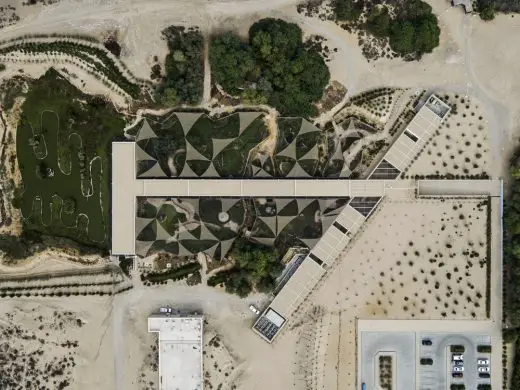
photograph © X-Architects Nelson Garrido
In designing the visitor centre, the architects took advantage of the site’s natural topography to minimise its visual impact by making it appear submerged into the ground.
Visitors descend a ramp to arrive at an angled intersection between two linear elements of the building: one, to the sides, containing services and administrative offices; the other, ahead, a long viewing gallery flanked by aviaries where birds can be seen in their natural habitat. At the far end of the viewing gallery, a third linear element, running perpendicular, houses a café and multipurpose space with views out over the open wetlands.
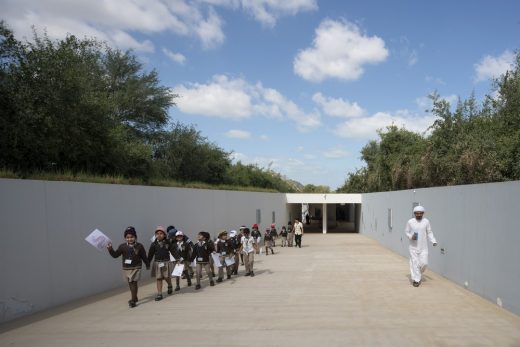
photograph © Aga Khan Trust for Culture / Cemal Emden (photographer)
A cantilevered steel truss roof over the viewing gallery avoids the need for peripheral columns, allowing seamless glazed façades. The interior is deliberately minimalistic throughout, placing the full focus on the surrounding nature: informative displays are the only adornment on the supporting central wall.
Aga Khan Award for Architecture 2019 Shortlisted Projects
Aga Khan Award for Architecture 2019 Shortlist – selected projects:
Muttrah Fish Market Muscat, Oman
Architect: Snøhetta, Oslo, Norway
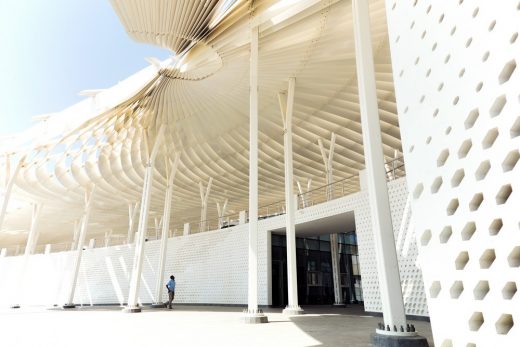
photography © Firas Al Raisi, Luminosity Productions
Mutrah Fishmarket Muscat Building by Snohetta
Concrete at Alserkal Avenue Dubai, United Arab Emirates
Architect: OMA: Office for Metropolitan Architecture, Rotterdam, Netherlands
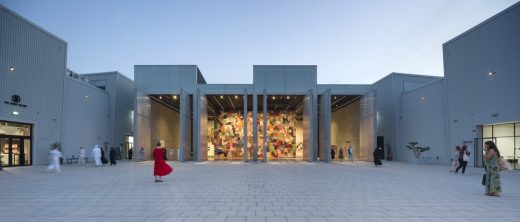
photograph © Aga Khan Trust for Culture Cemal Emden
Concrete Venue Dubai Alserkal Avenue by OMA
Palestinian Museum Birzeit, Palestine
Architect: Heneganh Peng Architects, Dublin, Ireland
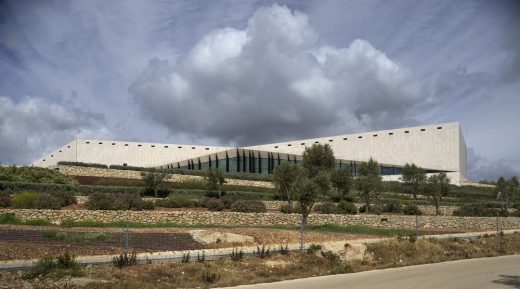
photograph © Aga Khan Trust for Culture Cemal Emden
Palestinian Museum Birzeit by Heneghan Peng Architects
Amber Denim Loom Shed Gazipur, Bangladesh
Architect: Archeground, Dhaka, Bangladesh
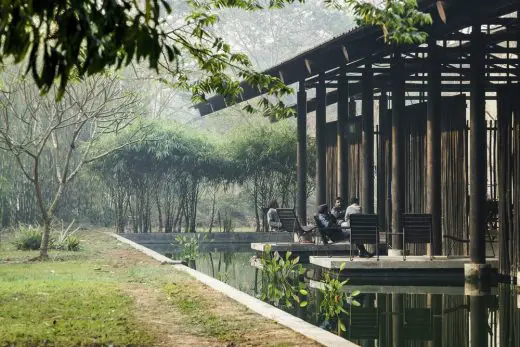
photograph © Aga Khan Trust for Culture Sandro di Carlo Darsa
Amber Denim Loom Shed by Archeground
Taman Bima Microlibrary, Bandung, Indonesia
Architect: SHAU Architects, Bandung, Indonesia
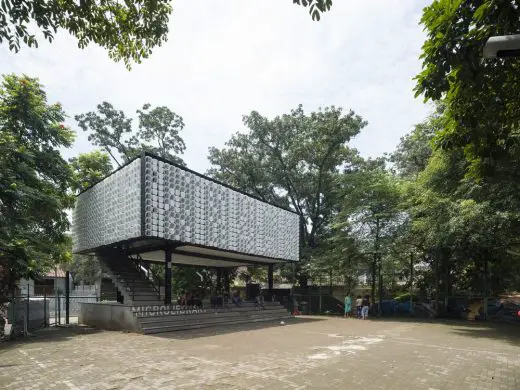
photograph © Aga Khan Trust for Culture Cemal Emden
Taman Bima Microlibrary by SHAU Architects
AM Residence Jakarta, Indonesia
Architect: Andramatin Architect, Jakarta, Indonesia
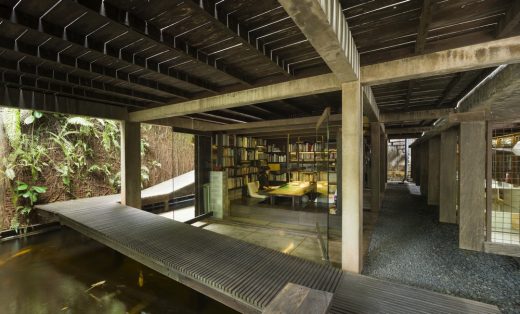
photograph © Aga Khan Trust for Culture Cemal Emden
AM Residence by Andramatin Architect
Courtyard House Plugin, Beijing, China
Architect: People’s Architecture Office, Beijing, China
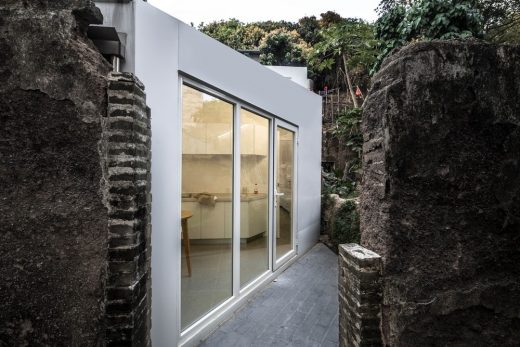
photograph © People’s Architecture Office
Courtyard House Plugin by People’s Architecture Office
Aga Khan Award for Architecture
Location: Doha, Quatar
Asian Architecture
World Architecture Festival Awards
Comments / photos for the 2020-2022 Aga Khan Award for Architecture page welcome

